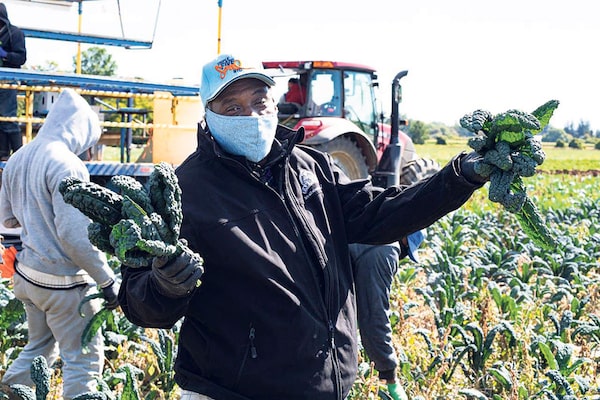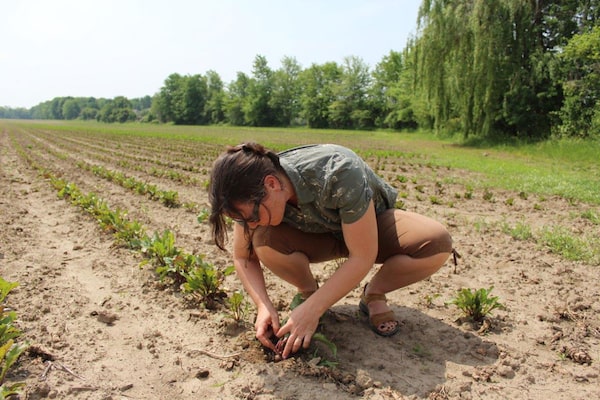
Pfenning's Farm is a family affair dedicated to environmental sustainability, and all those working on the farm, including migrant workers, are considered part of the family.Supplied
At Pfenning’s Farm, life centres around the commitment to living out principles of organic farming, says Jenn Pfenning, director of human resources, operations and marketing. The family-owned and operated farm, located just outside of New Hamburg, Ontario, has been growing vegetables, grains and legumes for four decades.
“We respect the Earth and work to nurture the environment we call home. And we extend the same principles to the people we work with and to our wider community,” she says. “It’s very simple: understanding the connectedness of everything is at the root of all we do.”
However, adhering to a philosophy built on a dedication to sustainability and cultivating nutritious food “leads to a whole lot of complexity,” she adds. While organic farms must address challenges faced by conventional farms – “weather, climate change, adverse conditions that bring pest populations” – what is different for organic farmers is “how we solve them.
“Pest species of insects and micro-organisms exist in the environment from the macro on down to the microscopic,” explains Ms. Pfenning. “The key is to ensure that other species keep them in check.”
Turning to cutting-edge science to ensure a healthy balance of diverse organisms in the soil, Pfenning’s Farm develops innovative methods or equipment – from introducing new hoeing techniques to modifying transplanter machinery – that support organic standards while increasing output and efficiency.

Jenn Pfenning, director of human resources, operations and marketing at Pfenning's Farm, examines beets. She sees nurturing the environment as a priority.Supplied
“We experiment,” she says. “Sometimes it doesn’t work out, but we learn. And then we do better.” This ability to innovate allowed Pfenning’s Farm to continue to offer its employees meaningful and steady work throughout the pandemic.
“Ensuring that our community was fed mattered more than anything else,” Ms. Pfenning notes. Yet some farm workers, especially essential team members from Jamaica who return year after year under the temporary foreign worker program, were prevented from travelling to Canada. They lost months of income while they and their families had no support system to fall back on.
Ms. Pfenning says she feels a responsibility to advocate for the rights of migrant workers as they fill an integral role. “We really value these relationships,” she says, adding that all who toil on the farm are considered extended family.
As to the family farm going back hundreds of years, Ms. Pfenning’s sons and nephew are in line to take over when the time comes. “It brings us such pride and joy to be working alongside them,” she says. “We are very fortunate that the next generation that is equally engaged, and I can’t wait to see where they take the farm next.”
Advertising feature produced by Randall Anthony Communications with Canada Organic Trade Association (COTA). The Globe’s editorial department was not involved.